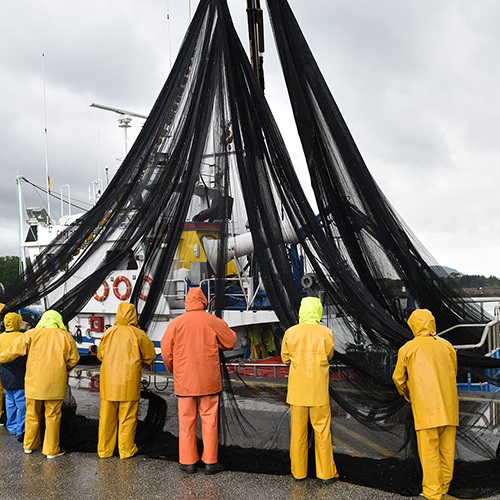The Marine Stewardship Council (MSC) is calling on Coastal States that harvest North East Atlantic (NEA) mackerel to make good on their commitment to secure a long-term quota sharing agreement by next Friday, 31 March 2023. With delegates meeting in London next week and this deadline fast approaching, the long term sustainability of this iconic species remains uncertain.
An agreed management framework including Harvest Control Rules (HCRs) and harvest strategies would enable fisheries managers to ensure the long term sustainability of these stocks. It would also open the door for mackerel to regain MSC certification, helping to secure important markets.
In the absence of this framework, nation states have been able to set Total Allowable Catches (TACs) in line with their own national interests, rather than following internationally set limits defined by the International Council for the Exploration of the Seas (ICES). This is a fundamental reason why mackerel lost its MSC certification back in 2019, with blue whiting and Atlanto Scandian (AS) herring following in 2020.
The loss of these MSC certificates is being felt in markets all over the world, with the MSC label disappearing off retail shelves for mackerel and AS herring. More than 40 retailers, food service companies and suppliers that form the North East Atlantic Pelagic Advocacy Group (NAPA) have made sourcing statements as part of their commitment to NAPA’s Fishery Improvement Plans (FIPs). With just one year left for these FIPs to be completed, now is a critical moment to secure a quota share agreement in line with science for mackerel, with AS herring and blue whiting following suit.
Erin Priddle, Regional Director for the Marine Stewardship Council in North Europe said: “Now is the moment to secure a deal and make lasting history to protect the North East Atlantic mackerel stock into the future.
“Without a long-term management plan and agreed quota share agreement, the risk to the future sustainability of the mackerel stock remains high, even if the stock biomass remains stable. We urge Coastal State delegations to raise their ambition in next week’s negotiations and finally put an end to the deadlock that has robbed these fisheries of long-term and lasting sustainable management for over a decade.”
Agreement on international fisheries management is in line with the United Nations Convention on the Law of the Sea (UNCLOS) and obligations for governments to deliver against the ambition set out in the UN Sustainable Development Goals (SDGs), particularly SDG-14 Life Below Water. With the recent ground-breaking agreement of the High Seas Treaty, now more than ever governments must strengthen their commitment for the protection of the ocean, and sustainable use of shared fisheries.



